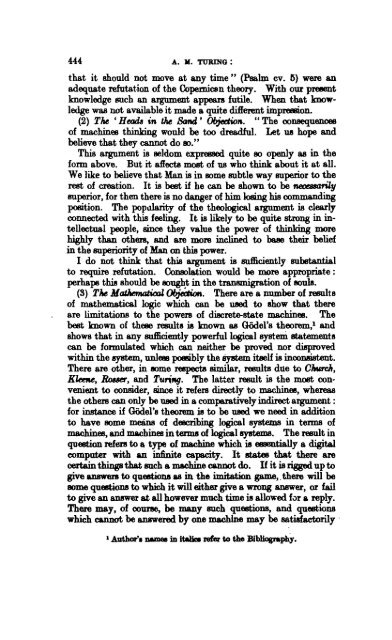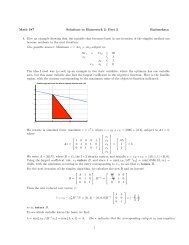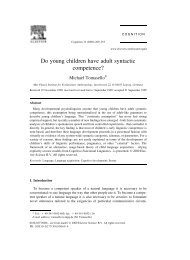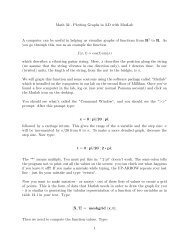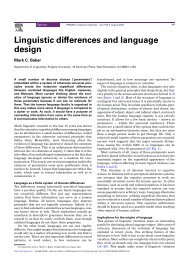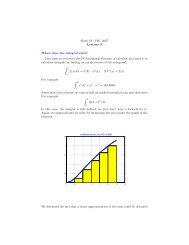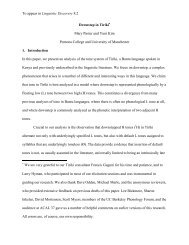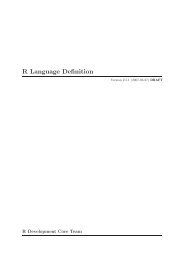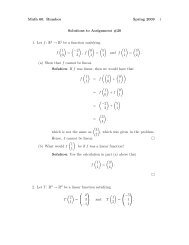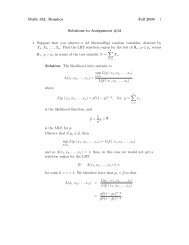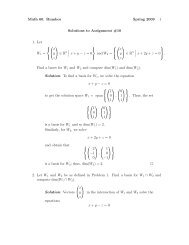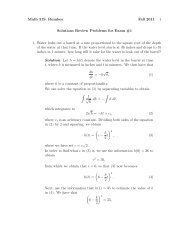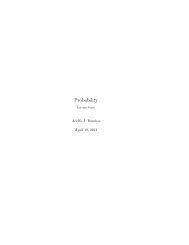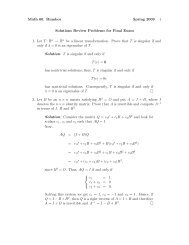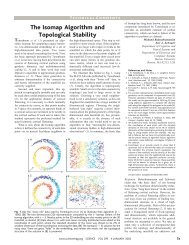Computing Machinery and Intelligence - Mind
Computing Machinery and Intelligence - Mind
Computing Machinery and Intelligence - Mind
You also want an ePaper? Increase the reach of your titles
YUMPU automatically turns print PDFs into web optimized ePapers that Google loves.
444 A. M. TUBING :that it should not move at any time " (Psalm cv. 5) were anadequate refutation of the Copemicsn theory. With our presentknowledge such an argument appears futile. When that knowledgewas not available it made a quite different impression.(2) The ' Heads in the S<strong>and</strong> ' Objection. " The consequencesof machines thinking would be too dreadful. Let us hope <strong>and</strong>believe that they cannot do so."This argument is seldom expressed quite so openly as in theform above. But it affects most of us who think about it at all.We like to believe that Man is in some subtle way superior to therest of creation. It is best if he can be shown to be necessarilysuperior, for then there is no danger of him losing his nranm<strong>and</strong>ingposition. The popularity of the theological argument is clearlyconnected with this feeling. It is likely to be quite strong in intellectualpeople, since they value the power of thinking morehighly than others, <strong>and</strong> are more inclined to base their beliefin the superiority of Man on this power.I do not think that this argument is sufficiently substantialto require refutation. Consolation would be more appropriate:perhaps this should be sought in the transmigration of souls.(3) The Mathematical Objection. There are a number of resultsof mathematical logic which can be used to show that thereare limitations to the powers of discrete-state rom-hiiiM, Thebest known of these results is known as Qddel's theorem, 1 <strong>and</strong>shows that in any sufficiently powerful logical system statementscan be formulated which can neither be proved nor disprovedwithin the system, unless possibly the system itself is inconsistent.There are other, in some respects similar, results due to Church,Kleene, Boater, <strong>and</strong> Turing. The latter result is the most convenientto consider, since it refers directly to mac.hinfls, whereasthe others can only be used in a comparatively indirect argument:for instance if Godel's theorem is to be used we need in additionto have some means of describing logical systems in terms ofmachines, <strong>and</strong> machines in terms of logical systems. The result inquestion refers to a, type of machine which is essentially a digitalcomputer with an infinite capacity. It states that there arenfrrtftin thinga thai, mch a yinmTiinft nannnt An If it is rigged up togive answers to questions as in the imfr"*" game, there will besome questions to which it will either give a wrong answer, or failto give an answer at all however much time is allowed for a reply.There may, of course, be many such questions, <strong>and</strong> questionswhich cannot be answered by one wm^Mna may be satisfactorily> Anthor't names in italics refer to the BibUogntphy.


